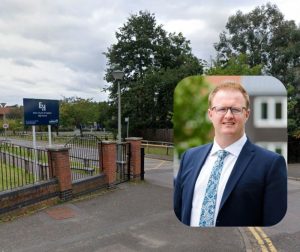How £11m for rail, transport, school, health and recreation upgrades will be spent in Mole Valley has been laid out. The district council has approved spending plans for community infrastructure money collected from developers since 2016 – with almost half expected to go on cycling and walking schemes. Community Infrastructure Levy (CIL) is paid as part of the planning process to help offset the impact of the growing number of homes in the borough. Councillor Bradley Nelson, cabinet member for planning, said: “The local plan was adopted in 2024 so the time has come to focus on the £11m of strategic CIL which could rise to £34m given the local plan growth.” He said the projects should be ones “the council thinks are necessary and achievable to help support development growth.”
“The programme commits investment for vital infrastructure such as health provision in Ashtead, Bookham, and a health hub in Leatherhead. Early years provision in Ashtead and Dorking would be targeted for funding as well as train station improvements in Dorking which we hope will lead to wider improvements and help the district as a whole, as well as investment in the district parks.” The council has been working with Surrey County Council over transport, education, early years provision and flood defence, Surrey Heartlands Integrated Care Partnership, Great Western Railway, Network Rail, the Football Foundation, and its own parks and open spaces team to get an up-to-date picture of the suitable projects.
It has earmarked two transport projects to upgrade rail infrastructure on the North Downs Line at the stations in Dorking. These projects, the Tuesday July 22 cabinet papers read, will complement planned improvements on the line, such as battery-electric trains, and increase the number of people using this sustainable transport mode. Deepdene Station will be upgraded as a priority and a lift installed, acting as a major contribution towards “realising the potential of the district’s east-west travel connections, supporting growth and promoting sustainable development”. School capacity issues requiring funding in Hookwood could also be addressed, as well as the expansion of the SEND school on Woodland in Leatherhead.
Surrey County Council’s early years team has identified two potential projects, one in Ashtead and one in Dorking, while football pitches at Ashcombe Secondary School in Dorking and the other at the Brockham Big Field could be upgraded to modern standards. There would also be financial support for the resurfacing of the sand-dressed pitch at Therfield Secondary School in Leatherhead to allow the installation of a new 3G football pitch “without losing a vital resource for hockey.”
Cllr Keira Vyvyan-Robinson (Liberal Democrats: Leatherhead North) said: “We all know just how much residents are concerned about the amount of development that comes and their biggest concern is where does the infrastructure come. It often seems that it’s a bit of a chicken and egg because the CIL comes from development, and without development you don’t get CIL – and therefore you don’t get infrastructure. For a long time we’ve been in the position where we’ve been telling residents we have to build these homes and we have to build these sites – and there hasn’t been anything to show – so it is really welcome to say ‘this is how we meet the infrastructure demands’. She added: “We can provide the funding, but we are dependent on the railway companies, the GP surgeries, the schools, to make those bids and to ask for the funding. But the development will pay for it and hopefully they will all come together at the same time.”
Estimated CIL Contributions by Infrastructure Category
- Transport – Active Travel – £11,555,000
- Transport – Passenger Transport – £3,450,000
- Well Being – Health – Primary Care – £2,350,000
- Well Being – Open Space and Public Realm – £3,859,000
- Well Being – Sports Facilities – £771,000
- Education – SEND – £870,000
- Education – Early Years – £300,000
- Flood Defence – Nature Flood Management – £95,000











